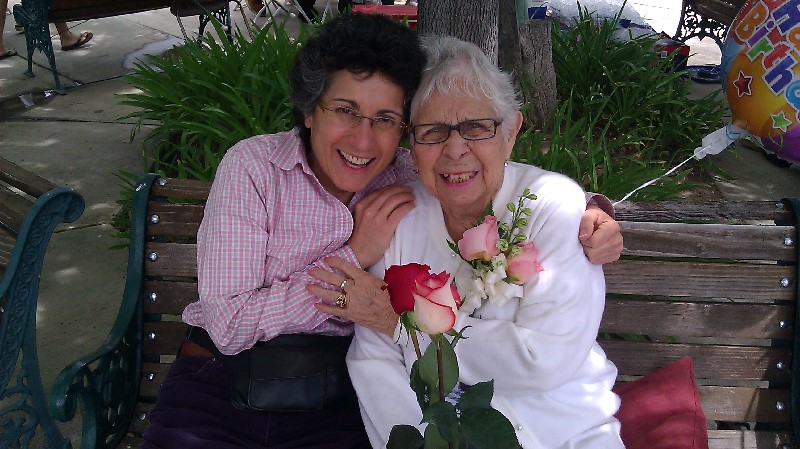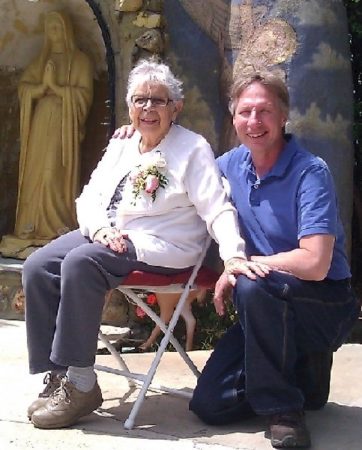If we’re to survive, we caregivers must find something to laugh about. We’ll thrive and find joy each day, when we tap our well of caregiver humor. There’s much to laugh about in simple everyday interactions if we stop being so serious about ourselves.
I used to visit, José, my caregiver friend Lisa’s husband. He was a resident in the same nursing home as my father. José was bedridden toward the end of his life with dementia. While he didn’t talk or open his eyes much, he did turn his head toward what sounded interesting.
One day, after visiting my father, I saw Lisa enter the building. I walked with her to visit her husband. She walked into the room and said, “Hola José. ¿Cómo está mi chaparro?” He fidgeted a bit and that was all. She explained, “He doesn’t respond much, but he does understand.”
“What does chaparro mean?” I asked.
“Little man,” she said. “José is my little man.”
“What? Your husband allows you to call him, little?” I teased.
Days later, when I visited my father again, I dropped in on José. “Hola José. ¿Cómo está Lisa’s chalupa?” (Pardon my Spanglish.)
He fidgeted and turned slightly.
This went on for some time. In fact, one of the Spanish-speaking CNAs commented when she heard me use the term chalupa. I explained, it was the affectionate term Lisa used for her husband.
All that changed the day Lisa and I arrived together to visit our loved ones. When she heard what I called José she looked shocked and then started laughing.
“What?” I asked, clueless.
“You’re calling my husband a boat,” she explained. “He is not a boat, he’s my little man. Chapaaaaarrrrro,” she emphasized, not chalupa.”
“Chaparro. Chaparro. Chaparrrrrro.” I repeated to anchor my learning. I even rolled my Rs.
SIGH. While people with dementia struggle to find the right word to express themselves, this wasn’t the problem. There’s nothing in the Caregiving for Dementia Rulebook that explains what to do when a caregiver uses the wrong word to express herself to a person with dementia.
Years later, after José and my father died, she got back at me. At her birthday party, she made an announcement. “I have a new boyfriend.” She was such a fun-loving person, I looked forward to learning who he was, until… I learned he was my husband!










Glad I found you, Brenda. I’m currently caregiving for my parents, both with dementia/Alzheimer’s. Humour is so important as we deal with all the stress and anxiety that surrounds this challenging condition. I know it sounds awful, but my parents and I always have a giggle when it’s time to clean their dentures. They run around making faces at each other and flapping their gums, it has become quite comical. And then there are those times when you can only see the humour after you’ve had a chance to look back… but all in all, if you can’t laugh, you’re just going to make yourself sick. I’ll take more time to read past posts, and invite you to read my blog as well. Cheers!
Loving humor is important for caregiver survival.
The only time humor may sound awful is to the ears who have never walked this journey.
Keep havin’ fun, Lorrie. You are walking the road along with other caregiver heroes who step up to care when faced with few other options.
Awww Brenda, this so so precious!
I remember my Grampa Jose would call Gramma Elsie, “Chaparrita”, I guess that means, “My Little Woman”!
I loved to spend time with the both of them, such sweet, affectionate, loving people.
They treated one another with such tenderness, and oh how they laughed together!
I am so blessed to have had them in my childhood.
Thank you for this golden memory, it does touch my heart.
Rosemary King
What a sweet postscript to this caregiver humor story!
Thank you, Rosie, for sharing these joyous memories.
Sadly, by the time I came into your grandpa’s life, dementia had taken much of his ability to function.